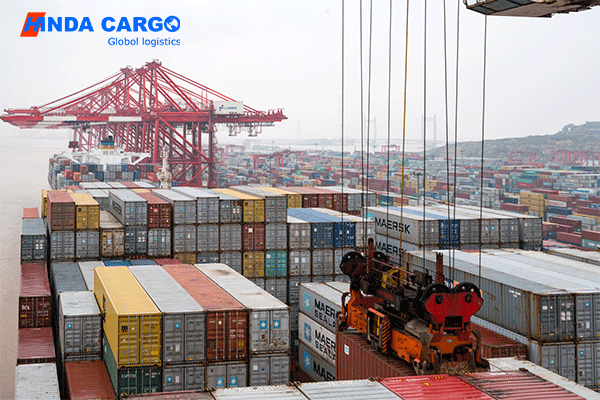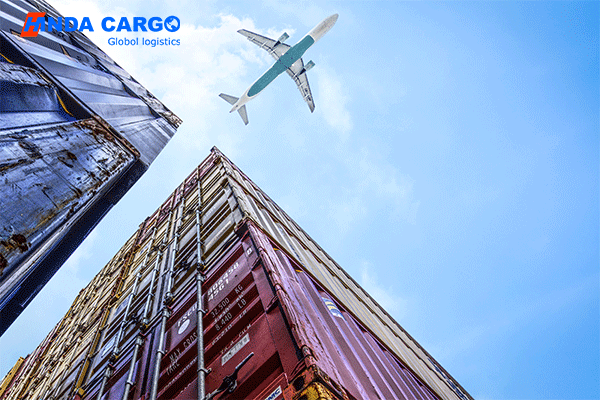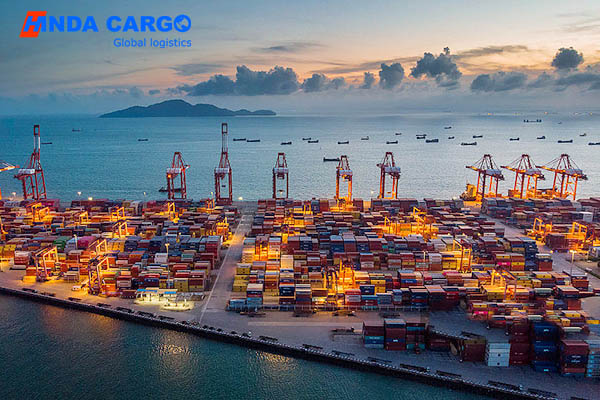How does the cargo tracking system work?
The cargo tracking system plays a key role in modern logistics, helping companies monitor the location and status of goods in real time. However, as the two main modes of freight transportation, sea and air transportation have some differences in the working mechanism of their cargo tracking systems.
Next, we will analyze how the cargo tracking systems of sea and air transportation work respectively.

Sea freight cargo tracking system: tracking the navigation track of the ship
In sea transportation, the cargo tracking system is mainly implemented by tracking the navigation track of the ship. Each ship that transports goods is equipped with advanced GPS technology, and the location of the ship can be determined in real time through satellite signals. Through this system, shipping companies can always know the specific location of the goods, and can also obtain relevant information about the ship's condition, weather, etc. in a timely manner.
Air cargo tracking system: with the help of real-time flight information
In air transportation, the cargo tracking system is closely related to the real-time flight information of airlines. Through the real-time flight information provided by airlines, companies can accurately grasp the take-off and arrival time of the goods, and even the environmental information such as temperature and humidity in the cargo hold. Unlike sea transportation, air transportation pays more attention to timeliness, so the cargo tracking system needs to provide more accurate information to meet the urgent time requirements.
Real-time data synchronization: ensuring the accuracy of cargo information
Whether it is sea or air transportation, the cargo tracking system ensures the accuracy of cargo information through real-time data synchronization. In this system, information from all links will be synchronized to the central database to ensure that all relevant parties can obtain the latest and consistent cargo information.

Exception handling mechanism: dealing with possible problems
The cargo tracking system also includes an exception handling mechanism to deal with possible problems. Whether it is sea or air transportation, you may face sudden weather changes, traffic congestion, cargo damage and other emergencies. The system will monitor various abnormal situations in real time and notify the relevant responsible parties in a timely manner. This allows companies to respond quickly when problems occur and reduce potential losses.
Customer information query: providing convenient query services
The cargo tracking system provides customers with convenient query services, whether through the official website of the logistics company, mobile app or other channels. Customers can obtain the location and status of the goods in real time by entering the cargo tracking number or other identification information.

Security guarantee: preventing cargo loss and damage
The cargo tracking system plays a role in security guarantee in both sea and air transportation. Through real-time monitoring, the system can promptly detect abnormal conditions of the goods, such as cargo loss or damage. This not only helps to improve the safety of goods, but also helps companies take remedial measures more quickly when problems occur.
Conclusion
The cargo tracking system provides intelligent solutions for sea and air transportation through technical means, and realizes real-time monitoring of the entire process of cargo transportation. Through continuous improvement and innovation, the cargo tracking system will continue to play an important role in improving the efficiency, safety and visibility of logistics transportation.




